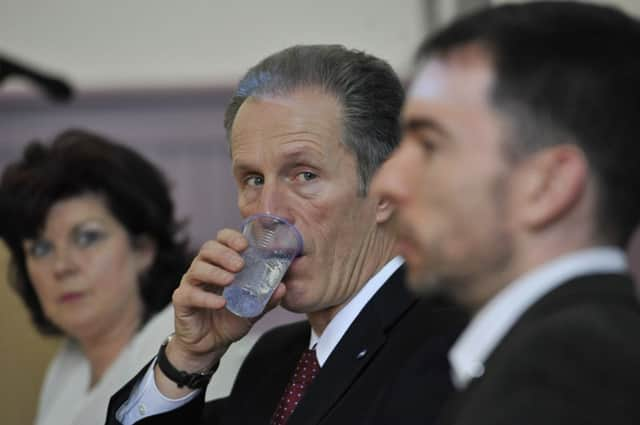Tom Peterkin: Money talks in independence campaign


Such was their largesse that Better Together now looks to be in an even stronger financial position than Yes Scotland, whose coffers have also swelled impressively thanks to the commitment to the cause of the Euro-lottery winners Colin and Chris Weir.
Inevitably in this polarised debate, the quantity of cash given to both campaigns and the nature of the donors have been the subject of much comment from the opposing sides.
Advertisement
Hide AdAdvertisement
Hide AdSpeaking to No spinners, one is likely to be confronted by the following question. How can Yes Scotland present itself as the largest grassroots campaign that the country has even seen when one lottery-winning couple account for 86 per cent of the £1,160,000 given to Yes Scotland in donations of £7,500 and over?
Speak to Yes Scotland supporters, however, and they counter by pointing to the 20,000 or so other donors who have given below the £7,500 threshold required for registration with the Electoral Commission. Since April last year, those donors have contributed cash amounting to a cool £667,173.
But, say the No campaigners, Yes Scotland’s £667,173 is dwarfed by the £1.6 million that Better Together has received in sub-£7,500 donations since December last year.
Ah, say Yes Scotland supporters, our small donations come from a wide range of people who are putting anything from a “pound in the bucket” to something more substantial. Yes Scotland sources will claim that Better Together’s “small” donations are “probably” from fewer people donating larger sums. As the Electoral Commission does not record the small donations, it is difficult to establish the truth behind such claims.
What the Electoral Commission register of donors does make clear is who the big donors are. With the big donors identified as big landowners such as the Earl of Seafield and bankers such as Bruno Schroder, it was perhaps inevitable that Yes Scotland’s chief executive Blair Jenkins should characterise the No campaign as being “funded largely by wealthy landowners, bankers and rich Tories – many of whom live outside Scotland”.
That characterisation will not sit happily with Labour supporters of Better Together. Overall though, it was difficult to escape the over-riding impression from Better Together HQ that No campaigners were simply grateful for the cash.